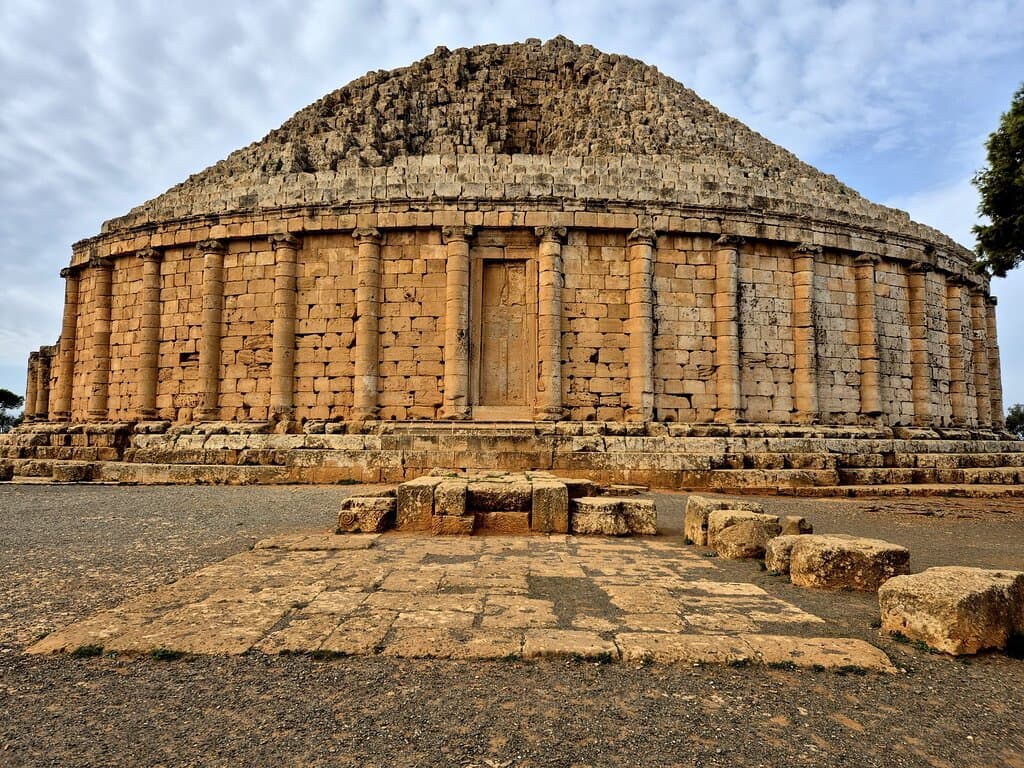
Royal Mausoleum of Mauretania
Ancient circular tomb, alleged burial place of Cleopatra's daughter, offering stunning views and rich history.
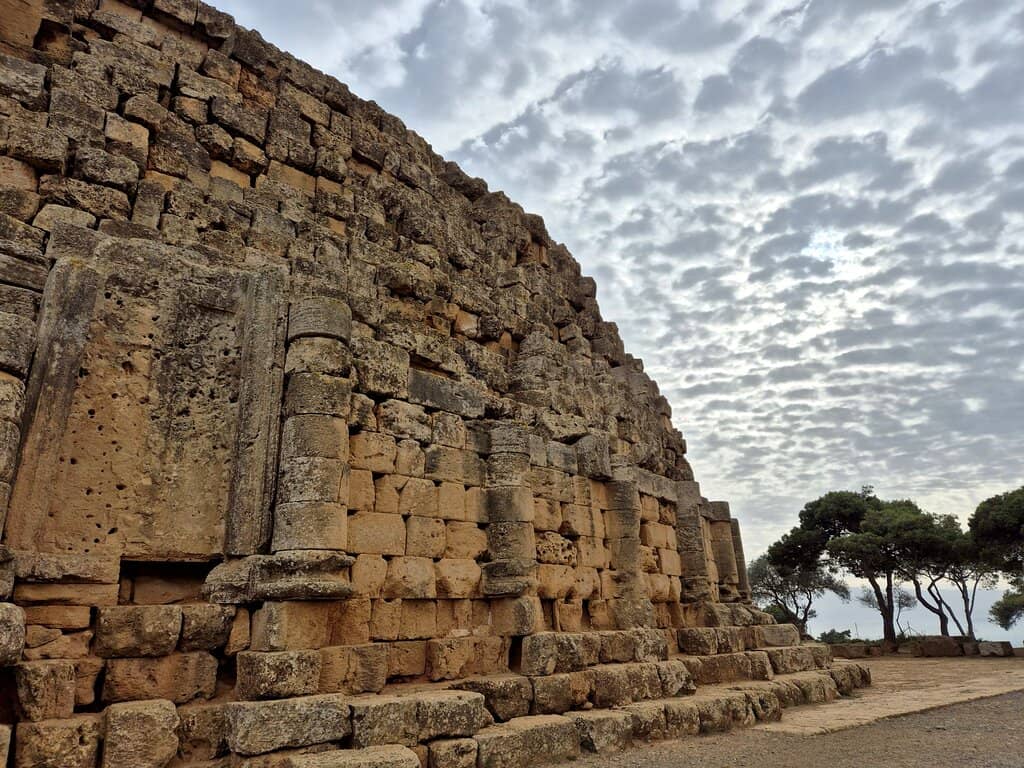
Highlights
Must-see attractions
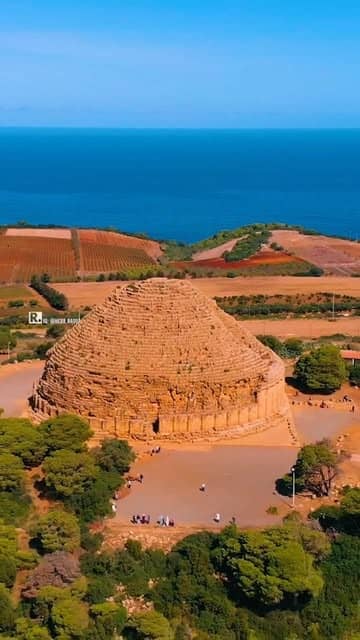
Social
From TikTok & Reddit
Best Time
Beat the heat and crowds

Royal Mausoleum of Mauretania
Best Time
Beat the heat and crowds

Highlights
Must-see attractions
Ancient circular tomb, alleged burial place of Cleopatra's daughter, offering stunning views and rich history.
"A remarkable blend of history, architecture, and natural beauty."
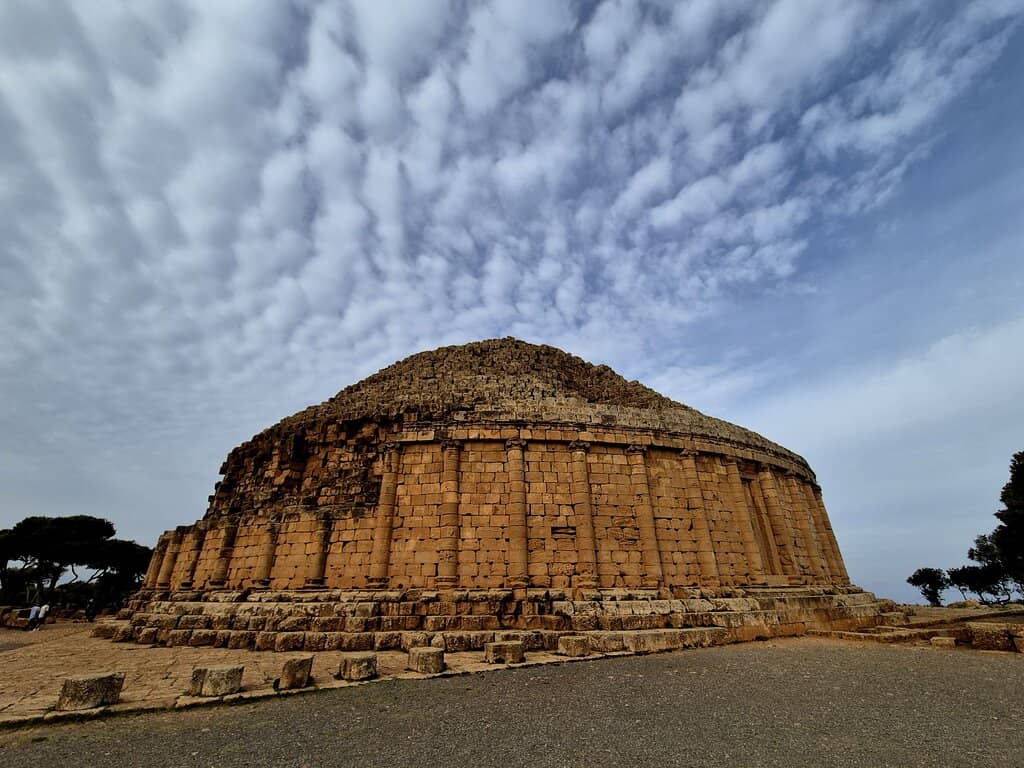
Wear Comfortable Shoes
You'll be walking on uneven terrain and potentially climbing gentle slopes. :athletic_shoe:
Bring Water & Sun Protection
Algeria can be hot, especially in summer. Stay hydrated and protected from the sun. :droplet: :sun:
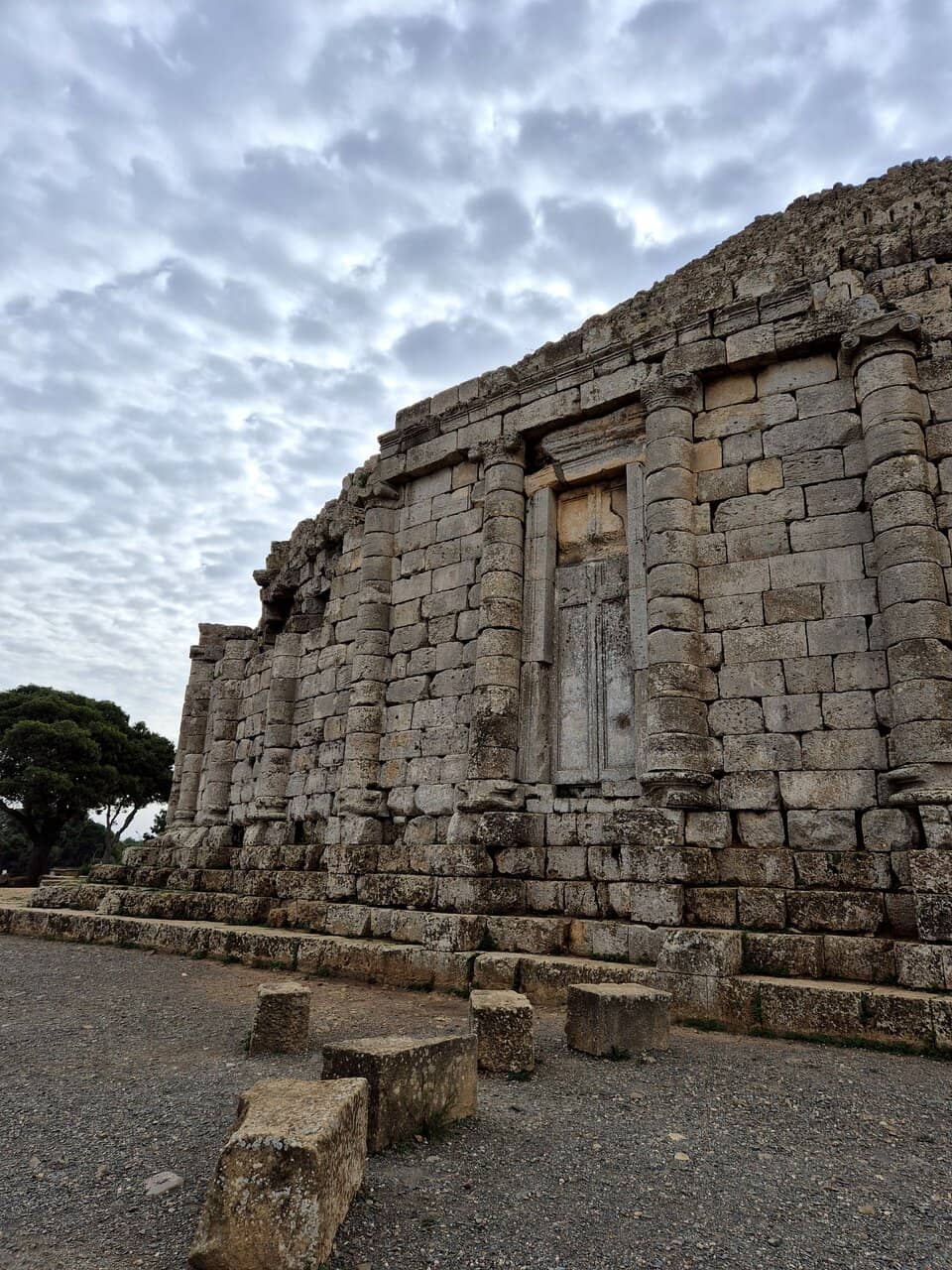
Highlights
Discover the most iconic attractions and experiences
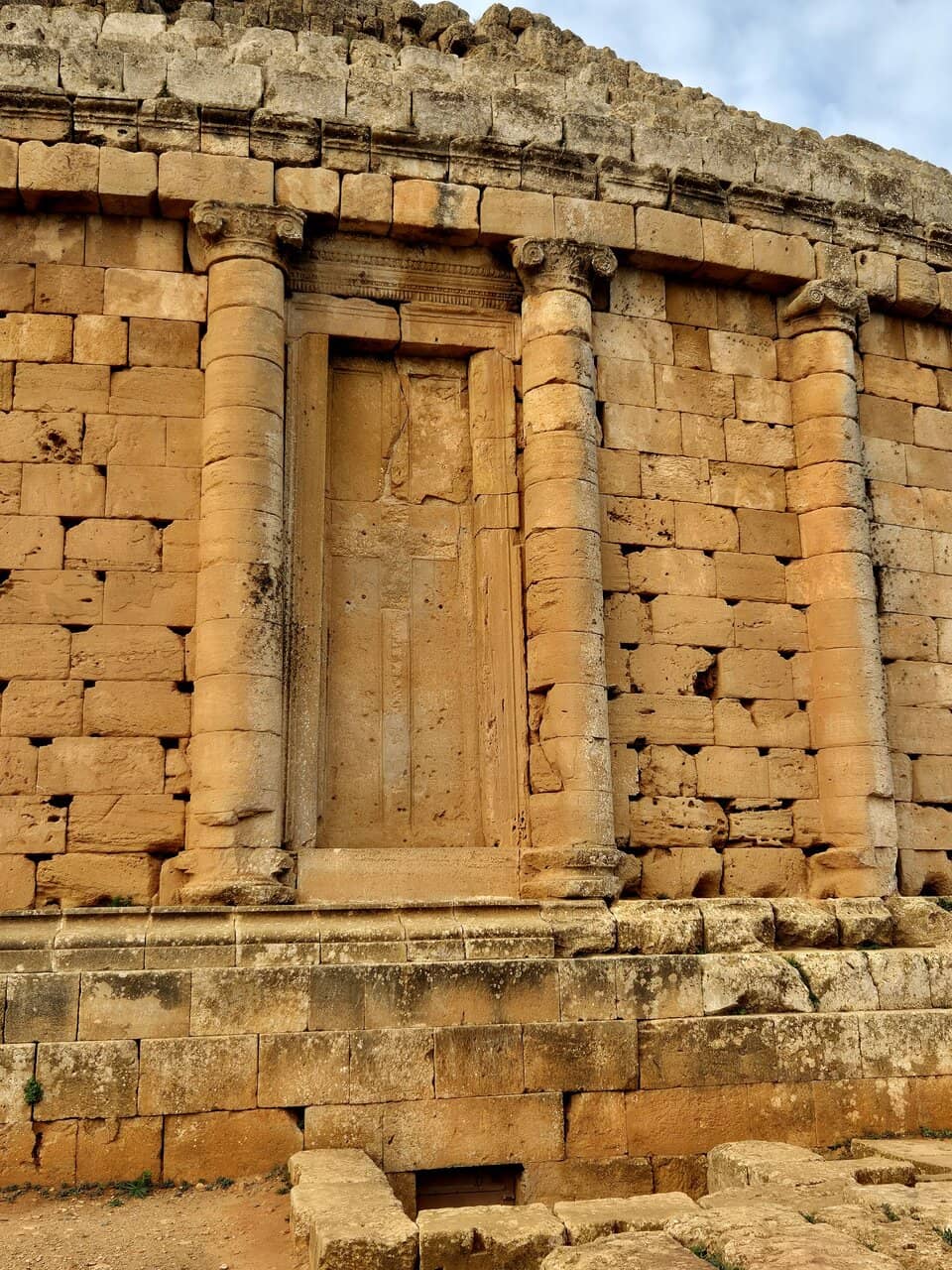
The Circular Mausoleum
A massive, ancient tomb with a unique circular design, rumored to be the resting place of royalty.
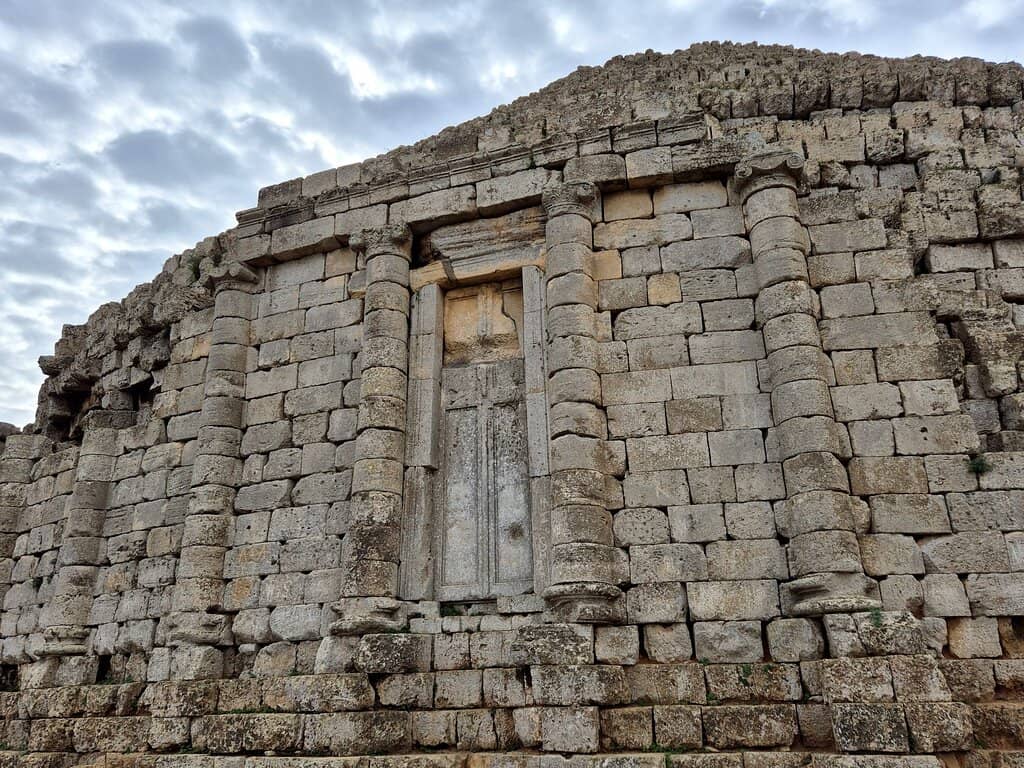
Panoramic Views
Hilltop location
Breathtaking vistas of the surrounding plains and the Mediterranean Sea await from this elevated site.
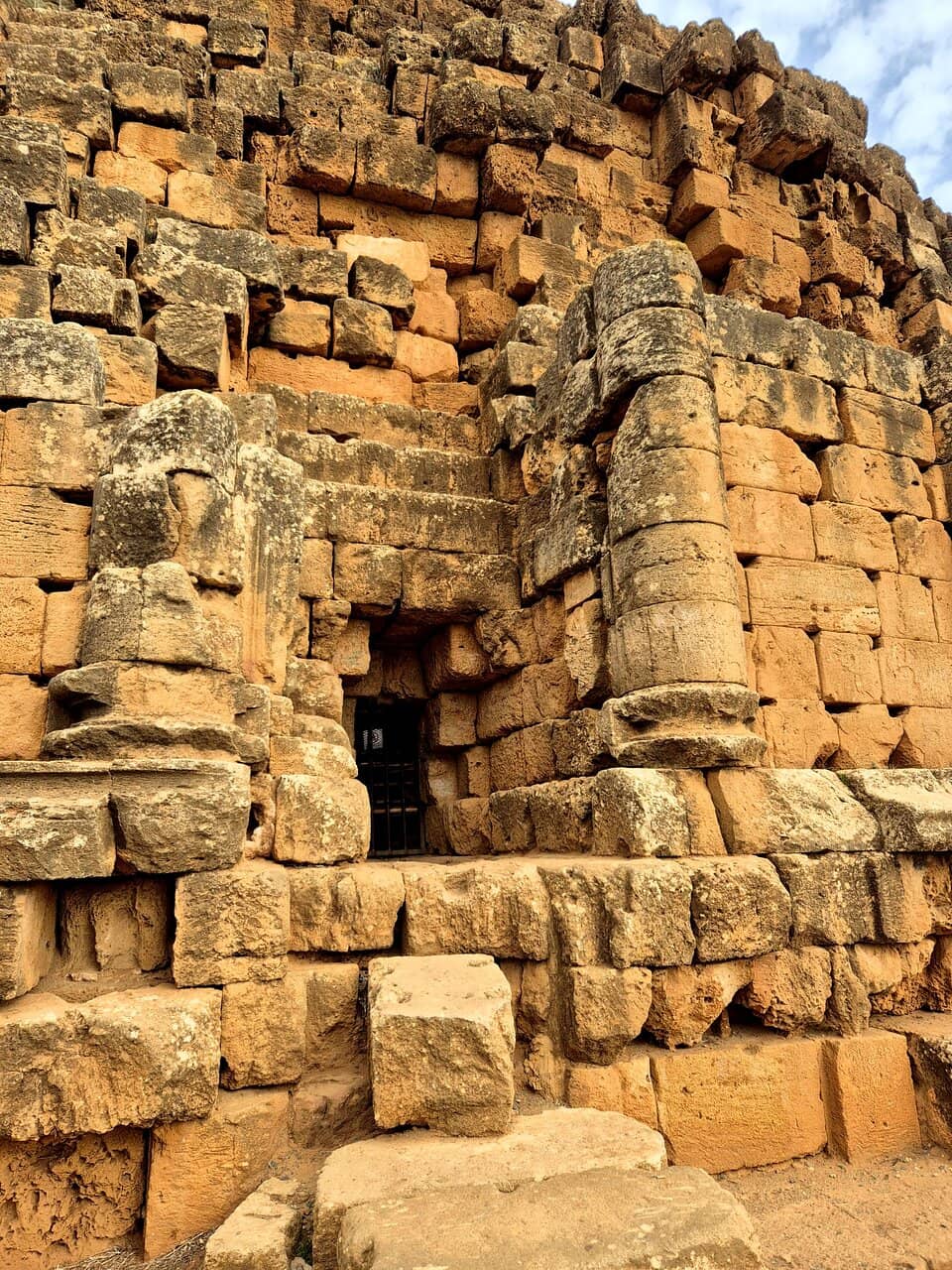
Architectural Details
Observe the remnants of ionic columns and the distinctive cross-shaped door decorations, hinting at its past grandeur.
Plans like a pro.
Thinks like you
Planning Your Visit
Timing Your Visit
Understanding the History
Best Times
Insider Tips
from TikTok, Instagram & Reddit
Wear Comfortable Shoes
You'll be walking on uneven terrain and potentially climbing gentle slopes. :athletic_shoe:
Bring Water & Sun Protection
Algeria can be hot, especially in summer. Stay hydrated and protected from the sun. :droplet: :sun:
Learn the History
Understanding the story of Juba II and Cleopatra Selene II enhances the visit. :scroll:
Capture the Views
The panoramic scenery is as impressive as the monument itself. :camerawithflash:
Tips
from all over the internet
Wear Comfortable Shoes
You'll be walking on uneven terrain and potentially climbing gentle slopes. :athletic_shoe:
Bring Water & Sun Protection
Algeria can be hot, especially in summer. Stay hydrated and protected from the sun. :droplet: :sun:
Learn the History
Understanding the story of Juba II and Cleopatra Selene II enhances the visit. :scroll:
Capture the Views
The panoramic scenery is as impressive as the monument itself. :camerawithflash:
What Travellers Say
Reviews Summary
Visitors praise the Royal Mausoleum of Mauretania as a must-see historical site with breathtaking panoramic views and fascinating architecture. Its significance as the tomb of King Juba II and Queen Cleopatra Selene II is a major draw. However, some reviewers note that the site could benefit from further restoration and improved infrastructure to enhance the visitor experience.
"The Mausoleum of Mauretania (note the correct spelling) is a must-see for anyone interested in historical architecture. This ancient royal tomb, believed to be the final resting place of King Juba II and Queen Cleopatra Selene II (daughter of Cleopatra and Mark Antony), offers a fascinating glimpse into North African and Roman-influenced heritage. The site is clean, largely well preserved, and the panoramic views from the hilltop are absolutely breathtaking. A remarkable blend of history, architecture, and natural beauty."
Louisa Kerma
"The Royal Mausoleum of Mauretania is sometimes referred to as the Mausoleum of Juba and Cleopatra Selene, as it is the final resting place of Juba II and Cleopatra Selene II, who were of the last king and queen of Mauretania. The mausoleum was constructed in 3 BCE.
Cleopatra Selene II was the daughter of Mark Antony, Roman Triumvir, and the Queen of Egypt, Cleopatra VII. It is believed that Pomponius Mela, a Roman geographer of the first century, was referring to the Royal Mausoleum of Mauretania, when he described The Communal Mausoleum of the Royal Family. He was correct, as not only was the mausoleum erected for the king and queen of Mauretania but as a royal tomb for their descendants as well.
Roman Emperor, in Rome many years before Juba II left for Numidia, and it was a deliberate act, as it was a sign of allegiance of Juba II to the Roman Kingdom. The mausoleum was constructed according to ancient mausoleums and their architectural design originated from mausoleums found in Egypt and Anatolia. This means that the mausoleum is built from stone and has a circular base. The top of the mausoleum was either completed with a pyramid or cone. The base would also have been decorated with ionic columns, but due to vandalism over the centuries, they are not longer part of the mausoleum."
Abdou Zidane
"I will make the same comment as for the ruines, A wonderful place with great potential, but it needs restoration and better infrastructure to attract more visitors. With proper care and improvements, it could become a must-visit destination"
Ferhat Belaid
What People Like
What People Dislike
Frequently Asked Questions
🚇 🗺️ Getting There
The Royal Mausoleum of Mauretania is located on the road between Cherchell and Algiers, in Tipaza Province. Many visitors access it by car or taxi from Algiers, which is about an hour's drive away. Public transport options might be less direct, so renting a car or hiring a driver is often recommended for ease of access.
While buses may run along the main road, reaching the mausoleum directly via public transport can be challenging. It's often more convenient to combine a visit with other sites in Tipaza and arrange for private transport or a guided tour.
The mausoleum is situated on the road connecting Cherchell and Algiers. Traveling by car or taxi is the most straightforward method, offering flexibility to stop and explore the surrounding areas.
Yes, there are typically parking areas available for visitors arriving by car. It's advisable to arrive earlier in the day to secure a convenient spot, especially during peak tourist seasons.
Absolutely! The Royal Mausoleum of Mauretania is a popular destination for day trips from Algiers. You can combine it with visits to the archaeological sites of Tipasa for a full day of historical exploration.
🎫 🎫 Tickets & Entry
Opening hours can vary, but generally, the site is accessible during daylight hours. It's always a good idea to check locally or with your tour operator for the most up-to-date information before your visit.
Information on entrance fees can fluctuate. While some sources suggest it's a relatively inexpensive site to visit, it's best to confirm current ticket prices upon arrival or through official tourism channels.
Advance booking is typically not required for the Royal Mausoleum of Mauretania, as it's an archaeological site rather than a ticketed museum. You can usually purchase tickets at the entrance.
Yes, the Royal Mausoleum of Mauretania is part of the archaeological site of Tipasa, which is listed as a UNESCO World Heritage Site. This highlights its significant historical and cultural importance.
Generally, photography is allowed at the Royal Mausoleum of Mauretania for personal use. However, it's always wise to be respectful of the site and avoid using flash photography in enclosed areas if any are accessible.
🎫 🧭 Onsite Experience
For the best photographic light, aim for early morning or late afternoon. The 'golden hour' before sunset offers a warm glow that enhances the ancient stone and the surrounding landscape.
A visit to the Royal Mausoleum of Mauretania typically takes about 1 to 2 hours, allowing time to explore the monument, take photos, and enjoy the views. If combined with other nearby sites, you'll need more time.
While official guided tours might not always be readily available on-site, hiring a local guide in Tipaza or Algiers can greatly enrich your understanding of the mausoleum's history and significance.
Comfortable walking shoes are essential due to the terrain. Lightweight, breathable clothing is recommended, along with sun protection like a hat and sunscreen, as much of the site is exposed.
The site has uneven ground and some inclines, which may pose challenges for visitors with significant mobility issues. It's advisable to assess the terrain carefully and consider assistance if needed.
🍽️ 🍽️ Food & Dining
Dining options directly at the mausoleum are limited. You'll find more restaurants and cafes in the nearby towns of Tipasa or Cherchell, where you can enjoy local Algerian cuisine.
Picnicking is generally permitted in designated areas, but it's important to be tidy and take all your rubbish with you. Bringing water is highly recommended, especially during warmer months.
In the Tipaza region, you can enjoy fresh seafood, traditional tagines, couscous, and various grilled meats. Exploring local eateries in Tipasa town will offer authentic flavors.
📸 📸 Photography
The entire site offers great photo opportunities. Focus on the imposing structure of the mausoleum itself, the panoramic views from the hilltop, and any remaining architectural details like the columns.
Drone usage is often restricted at historical and archaeological sites due to preservation concerns and regulations. It's best to check with local authorities or site management before attempting to fly a drone.
The 'golden hour' around sunrise and sunset provides the most dramatic and beautiful lighting for photographing the mausoleum, casting long shadows and warm hues on the ancient stone.
Look for the unique circular base, the remnants of ionic columns, and the distinctive cross-like carvings on the doors. These details add depth and historical context to your photographs.
A wide-angle lens is useful for capturing the scale of the mausoleum and the expansive views. A telephoto lens can be helpful for isolating architectural details. A tripod can be beneficial for low-light photography during sunrise or sunset.
For Different Travelers
Tailored advice for your travel style
👨👩👧 Families with Kids
To make the visit more enjoyable for younger ones, consider bringing snacks and plenty of water, as facilities are limited. Keep the visit relatively short to maintain their attention, perhaps focusing on the main structure and the views. Combining it with a visit to the nearby Roman ruins of Tipasa, which often have more visible structures and open spaces, can create a more varied and engaging historical day trip for the whole family.
🏛️ History Buffs & Archaeology Enthusiasts
Delve into the details of its construction, inspired by Egyptian and Anatolian styles, and ponder the symbolism of its design. The site's status as part of the UNESCO World Heritage archaeological site of Tipasa further underscores its importance. Consider hiring a local guide to gain deeper insights into the historical context and archaeological findings associated with the mausoleum.
📸 Photographers & Instagrammers
Experiment with different angles to showcase the mausoleum's scale and unique architectural features, such as the remnants of ionic columns and the distinctive door carvings. The surrounding natural beauty also provides ample opportunities for landscape photography. Remember to bring a wide-angle lens to capture the grandeur of the monument and its setting.
Deep Dives
In-depth insights and expert knowledge
A Royal Legacy: History of the Mausoleum
The mausoleum's architecture is a fascinating blend of influences, drawing inspiration from ancient Egyptian and Anatolian mausoleums, as well as Roman design principles. It features a distinctive circular base, originally adorned with ionic columns, and was topped with a pyramid or cone. The four doors, often decorated with large cross-like symbols (which led to it being mistakenly called the 'Tomb of the Christian'), are a unique architectural element.
Originally constructed as a royal tomb for Juba II and Cleopatra Selene II, it also served as a burial place for their descendants. The mausoleum stands as a testament to the power and cultural sophistication of the ancient Kingdom of Mauretania, offering a tangible link to a pivotal period in North African history.
Exploring the Site: What to Expect
While the mausoleum is remarkably well-preserved for its age, some parts, like the original ionic columns, have been lost to time and vandalism. Visitors can walk around the base of the monument and appreciate its scale and the intricate details that remain. The elevated position also makes it an excellent spot for photography, especially during the golden hours of sunrise and sunset.
It's important to wear comfortable shoes as the terrain can be uneven, and to bring water and sun protection, as much of the site is exposed. The experience is often described as a blend of historical discovery and natural beauty, making it a memorable stop for history enthusiasts and sightseers alike.

Social
from TikTok, Instagram & Reddit